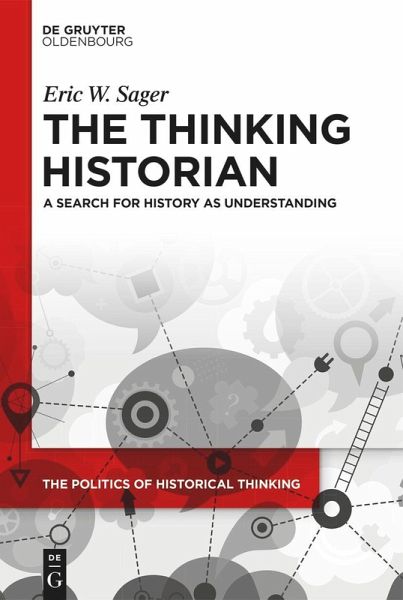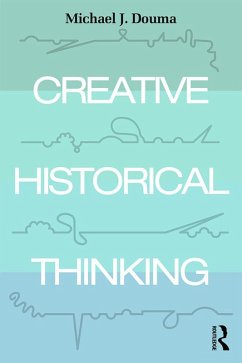
The Thinking Historian (eBook, ePUB)
A Search for History as Understanding
Versandkostenfrei!
Sofort per Download lieferbar
56,95 €
inkl. MwSt.
Weitere Ausgaben:

PAYBACK Punkte
28 °P sammeln!
What is history? What are historians doing, when we create our histories? The need for answers is more urgent than ever. We live in an era when history is often rejected or ignored, and when all teachers of history confront formidable challenges. In the culture of screen capitalism and social media, historical knowledge is evaded in an expanding present-minded consciousness. How can history be defended, and what is it that we are defending?This book argues that history is a mode of thinking, a form of imaginative reasoning with its own informal logic. In non-technical language and using exampl...
What is history? What are historians doing, when we create our histories? The need for answers is more urgent than ever. We live in an era when history is often rejected or ignored, and when all teachers of history confront formidable challenges. In the culture of screen capitalism and social media, historical knowledge is evaded in an expanding present-minded consciousness. How can history be defended, and what is it that we are defending?
This book argues that history is a mode of thinking, a form of imaginative reasoning with its own informal logic. In non-technical language and using examples from important works of history, the book defines core elements in historical thinking. These include contingency, complexity, temporality, parts and wholes, consilience, perspectives, analogy, and abduction. These elements are subsumed into the concept of imaginative reasoning. The overall argument echoes the work of hermeneutic philosophers. History is a disciplined imagination, tempered and empowered by its forms of reasoning. It embraces ethical imperatives that the historian has a duty to declare. Equipped with such understanding, historians may answer the many rejections of history and secure its place in our shared futures.
This book argues that history is a mode of thinking, a form of imaginative reasoning with its own informal logic. In non-technical language and using examples from important works of history, the book defines core elements in historical thinking. These include contingency, complexity, temporality, parts and wholes, consilience, perspectives, analogy, and abduction. These elements are subsumed into the concept of imaginative reasoning. The overall argument echoes the work of hermeneutic philosophers. History is a disciplined imagination, tempered and empowered by its forms of reasoning. It embraces ethical imperatives that the historian has a duty to declare. Equipped with such understanding, historians may answer the many rejections of history and secure its place in our shared futures.
Dieser Download kann aus rechtlichen Gründen nur mit Rechnungsadresse in A, B, BG, CY, CZ, D, DK, EW, E, FIN, F, GR, HR, H, IRL, I, LT, L, LR, M, NL, PL, P, R, S, SLO, SK ausgeliefert werden.













